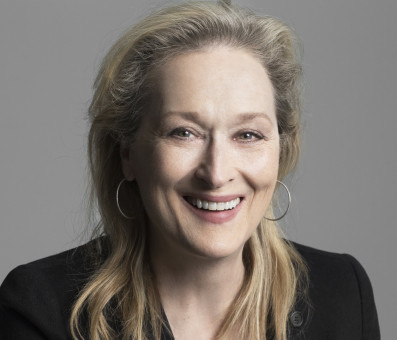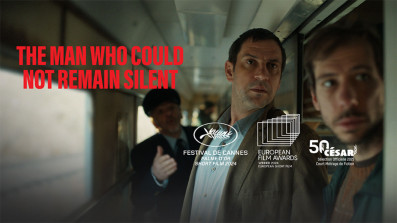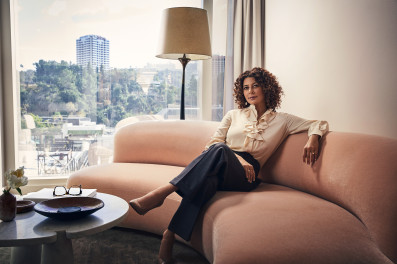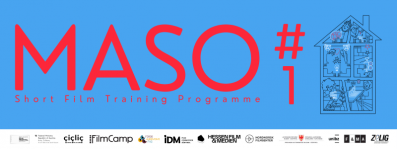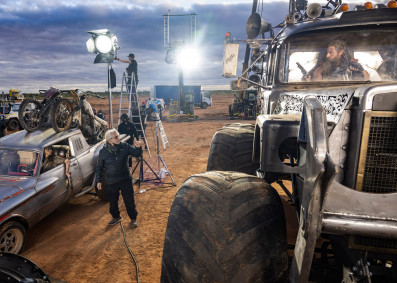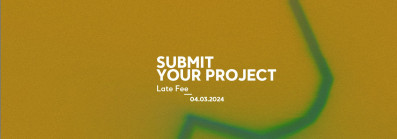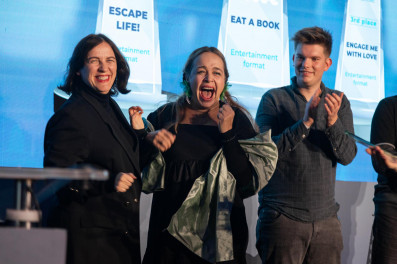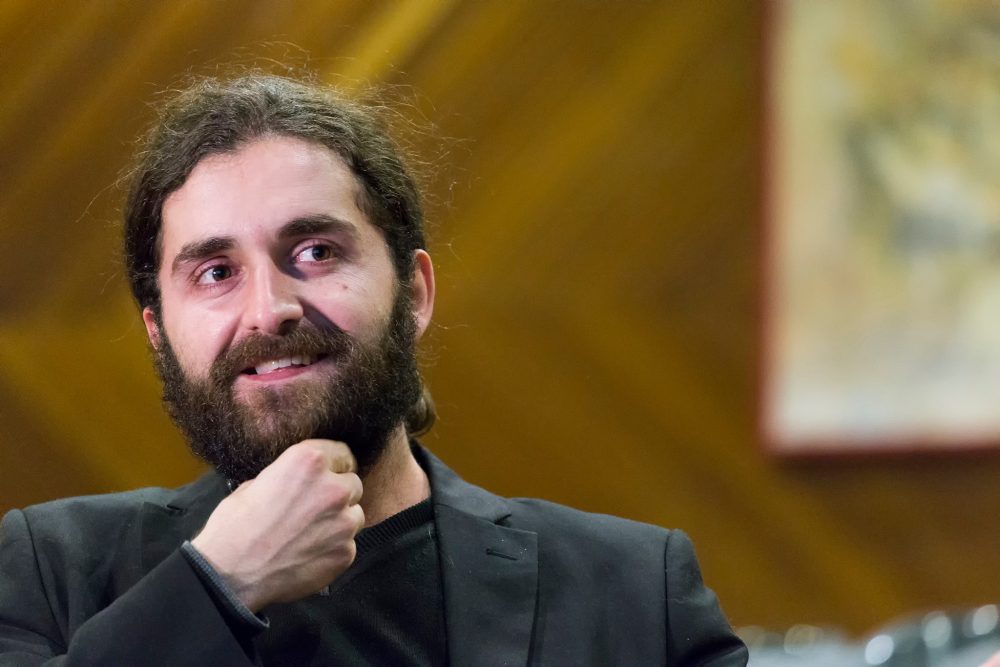
Interview with Ado Hasanović director of "Let there be Colour" : The first BiH pride parade is a historical event, and diversity is our treasure
There was great resistance to meet the Parade, anti-parade, campaigns, calls for violence ...
Ado Hasanović is a film director of Bosnian origin, with a current address in Rome. He graduated in directing from the Sarajevo Film Academy with the short film Mama, after which he continued his studies at the Centro Sperimentale di Cinematografía. His film journey is marked by films in which he questions stereotypes and taboos in society, and the family as a cell of that society, full of trauma and contradictions. This year, Ado presented his film about the First Bosnian Pride Parade, Let there be Colour at Sarajevo Film Festival.
Hey Ado, let's start with the relaxing question, so what are you currently doing in Rome?
I'm hiding from Corona… (laughs) I ride a bike, I write a lot, I work… I'm bored, but there is no other option and we have to adapt to the situation.
Do you follow the epidemiological situation in Italy and how different is it from what is currently happening in BiH?
I’ve been reading the news less lately because I want to be calmer. The situation is very bad due to a large number of infected, and in recent days, as some new measures have been introduced by the authorities, people are protesting all over Italy. Various groups take to the streets, some are even violent, clash with the police, break shop windows… The situation is not the best, this is the second wave and people are bored with everything. They don't know what it's about, and every second or third day the rules change.
Every time I talk to someone who has moved from our country, I can't help but ask how and why did it happen?
The departure was primarily for education. I wanted to continue my specialization in film, and there is a national school in Rome, which is the second oldest film school in the world. I came there, passed the exam and stayed. It was hard because it was all in Italian, but seven years ago I was younger and didn’t think about some things. Three years after I completed that specialization in directing, I stayed in Rome, working on my first feature film and holding film workshops at various film festivals and universities, high schools and elementary schools. I teach the younger generations how to make a film, based on their experience.
You were born in Srebrenica. Was it a more thorny road from Srebrenica to Sarajevo, or from Sarajevo to Rome and an international career?
It was much harder for me to move from Srebrenica to Sarajevo. I returned to Srebrenica after the war and it was a struggle for survival and existence. Everything was destroyed and demolished, we started from scratch. The environment is such that you reach one limit and then stop progressing. It was difficult, I felt that my knowledge was at a level that needed to be raised. It was difficult and financial to come to Sarajevo, which is a world metropolis. But perseverance and faith in oneself are very important. You should not give up.
Going from Sarajevo to Rome was much easier, it was an easy jump. It was not difficult, although Rome is much bigger than Sarajevo. Life in a big city is much more freedom. I love being lost in the streets and being inconspicuous.
Although you are physically gone, you are present here, both on stage and thematically, you are constantly questioning stereotypes in our socially neglected BiH society, through short documentaries and feature films.
Looking from here at how our country is clean, full of wonderful people, organic food… understand that it is a paradise on earth and you can't help but wonder why some brutal things happened in the past. I constantly need to observe those things and absurd question topics. It’s easiest for me to express myself in film language and I’m happy I chose this path. From Rome, I see it a little differently. If I was in Sarajevo, I might not have made Let There Be Colour but here it was hard for me to hear criticism and I wanted to make a film, to leave something behind the First BiH Pride Parade. I am glad that this film is related to basic human rights.
This year, you presented yourself at Sarajevo with Let There be Colour, which you did about the First BiH Pride Parade. How did you come up with the idea to make a film and did it look like that in the beginning, while you were thinking about it?
When I started making the film, I wanted to say everything I could feel in my stomach. It was important for me to insert elements of diversity, which are our wealth. It is a historic event and it is a part of all of us. Accepting others and different and growing up in different cultures is a part of us. We have different political leaders who want us to be irreconcilable because of their political interests, and then our worst mantra follows, it can be worse. Why, when it can be better and needs to be constantly improved.
There was a lot of resistance to meet the Parade, anti-parade, campaigns, calls for violence ... Throughout the film, I tried to record the different thoughts of people before, after and during the Parade.
This was one of the most challenging films I’ve ever made because I didn’t know what it was going to be and how it was going to end. Everyone has the right to their position, but violence should not be called for.
The commemoration of September 8, the date of the First BiH Pride Parade, will be included in the proposal of the Program for the Commemoration of Significant Days in the Field of Human Rights in BiH. Apart from being an extraordinary work of art, your film is an important document that testifies to the environment in which the First BiH Pride Parade took place.
I got a premiere at SFF and many other festivals and I am very glad that I covered this very complex topic about which 58% of the citizens of our country spoke negatively. People spoke openly and honestly, whatever their views were. The film does not condemn anyone. I wanted to make a story from the point of view of an ordinary man. So far, 18 film festivals have selected this film.
In addition to the First BiH Pride Parade, the film spoke about the identities, worldviews and religious attitudes of our citizens.
It is not possible to tell the story of the Pride Parade without mentioning religious attitudes, because religiosity is very pronounced in our country. Through their religious attitudes, I wanted to show what our mentality is. Through the narration of the film, I wanted to point out some absurd situations that are happening in our country. The combination of the voice of the citizens and my narration tells the story.
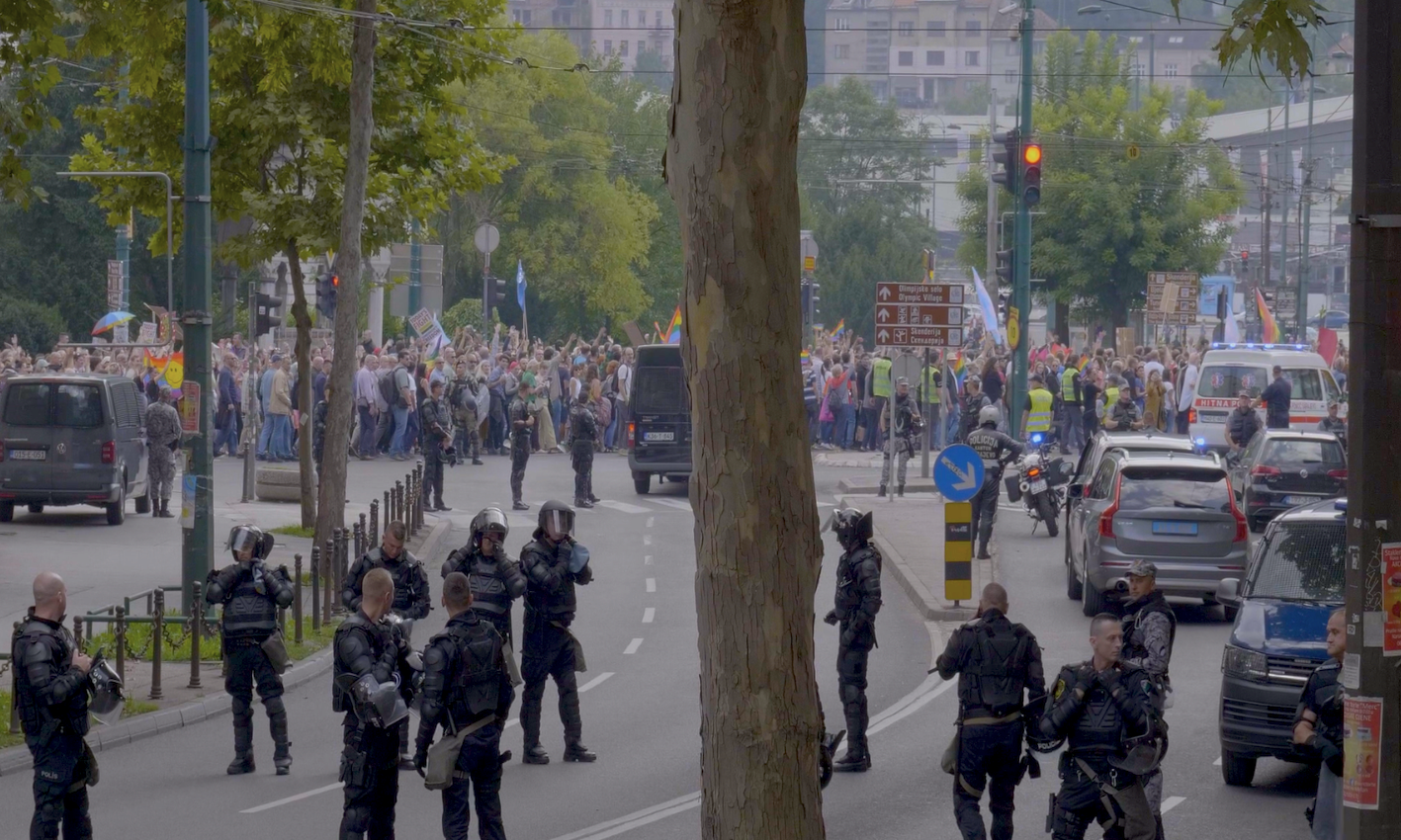
The key sentence you utter in the film is We are good and tolerant people, people who killed each other, 25 years ago. How much truth and irony did she care about?
That is ironic, but it is true because we are good and tolerant people. We tolerate our politicians and many other situations, we do not protest, we do not protest, often guests say that we are good and kind, but then they ask us how it is possible that only 25 years ago we killed ourselves in the war, which took 97 000 people, citizens of our country.
You are also the narrator in the film and you tell the story objectively, you show the views of the citizens of Bosnia and Herzegovina you are interviewing, and at no point do you express your opinion about the Parade, although the ironic departure with which you talk about BiH society automatically puts you aside. those who are for the Parade. Stylistically, it is similar to the way Jasmila tells her stories. Both offer catharsis, not lobotomizing the viewers, but letting them come to a conclusion on their own and choose the right side. How difficult is it and how much responsibility and ethics does it take to tell a story that way?
It is very complex to do something like that. I knew all along that over half of the people were against it and it was difficult to determine an objective approach. I am glad that I managed to give visibility to the people who were against the procession. The goal was to follow a historical event in our country. When I say in Rome that the First BiH Pride Parade took place last year, they think I am joking and that it is not possible that it happened only now.
Our country went through the war and great destruction, after which many people focused on survival and basic things in life. No one fought for human rights, but the construction of homes for life.
In the future, I believe that the perception of the LGBTQ population will change, because all people should be equal and no one should be abused. We know what happened earlier when groups of people separated, separated and declared themselves different. I think we don’t need that and we should all live together, fighting for all of us.
The film was recently shown on N1 television. What will the distribution in BiH look like further?
Yes, the film was shown on N1 Television, an integrated version of 42 minutes. The plan is to be shown on BHT, TV SA and other televisions. In the coming period, we want to show the film in 10 cities in BiH, including Banja Luka, Prijedor, Donji Vakuf, Brcko, Bihac, Zvornik, Sarajevo, Tuzla, Zenica and Mostar. We want to bring the film to those cities, watch it together with the audience and discuss it.
Source: Vanja Šunjić/ BUKA



